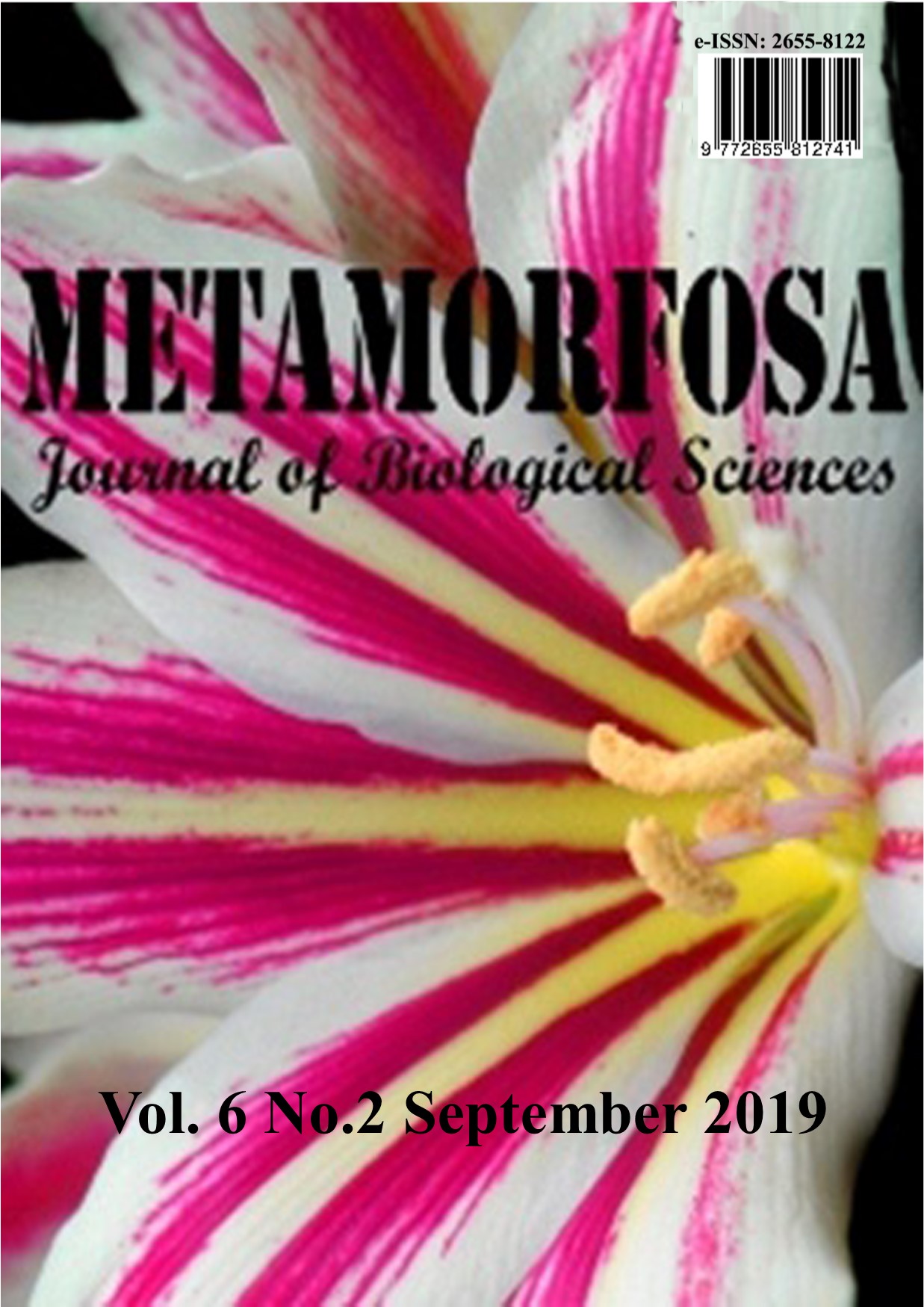Production of Virgin Cococnut Oil (VCO) Catalized by Lactobacillus plantarum and Enzymes Contained in Pineapple Fruit Extract
Abstract
Indonesia is a tropical country with an area of coconut plantation of 3.7 Ha. The fruits of this plant have been used as materials in the production of Virgin Coconut Oil (VCO). Such oil is known to contain higher Medium Chain Fatty Acid (MCFA) or Medium Chain Triglycerides (MCTs) than original frying oil. The MCTs of this oil is very useful to avoid obesity, to reduce total cholesterol as well as to function as anti-microbes. These have been considered as a cheap solution to solve health related problems. The main objective of this research was to produce VCO catalyzed by pure culture of Lactobacillus plantarum isolated from a commercial VCO (Vici’O) combined with enzymes extracted from pineapple fruits. The study was conducted at the laboratory of Microbiology, Faculty of Mathematics and Sciences, Udayana University. The study was started with isolation and identification of Lactobacillus sp. from a commercial VCO. The VCO production method combined the two starters of Lactobacillus isolates (at concentrations of 0 to 10% v/v) and pineapple juice with various volumes (0 to 60 mL). In the first stage of the project, 3 potential Lactobacilli isolates (Sp1, Sp2, and Sp3) were successfully isolated and were confirmed to be Lactobacillus sp. In the main experiment, combination of 10% v/v Lactobacillus starter and 60 mL pineapple juice produced the highest VCO yield (43,17% v/v) with improved organoleptic properties, lower water content, lower saphonification, and lower peroxide than that specified by SNI No 7381: 2008.





